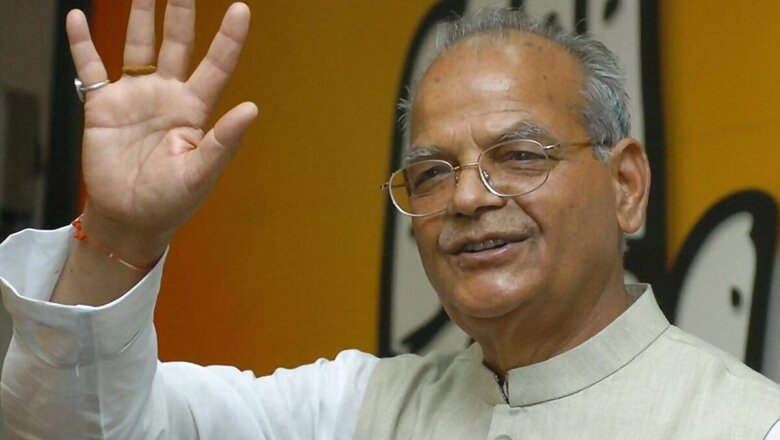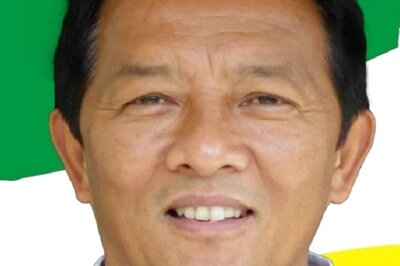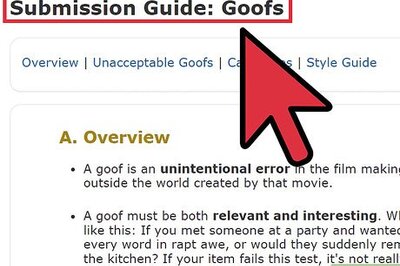
views
Ex-Union Minister, Sukh Ram, remembers how he beat all disbelief to bring mobile technology to India. On July 31, 1995, India reached a historic milestone by making the first ever mobile phone call – between erstwhile Union Telecom Minister, Sukh Ram, and Chief Minister of West Bengal, Jyoti Basu. The call was made on Nokia phones, allegedly the Nokia rinGo, on the first mobile telecom network, Modi Telstra. As the 93-year-old ex-minister celebrated his birthday on July 27, he retraced the memories of that historic moment during his 3 km walk at Paddal Ground in Mandi, Himachal Pradesh.
On a trip to Japan as Cabinet Minister for Telecommunications, Sukh Ram saw his chauffeur carrying a mobile phone in his pocket. This got him thinking that if Japan could have the technology, why couldn’t India. He also credits former Prime Minister Rajiv Gandhi, who wanted computers and telephones to become mainstream in India. Sukh Ram discussed his vision with the late founder of Reliance Industries, Dhirubhai Ambani, who had come to meet him, and said that the mobile telephony industry will one day be highly profitable. Significantly, the Ambani family today oversees Reliance Jio, the biggest mobile telecom operator in India – and also one of the biggest internet companies in the country.
One thing Sukh Ram says that he never anticipated back then was how a camera can be attached to the mobile phone – something he now sees everyone having access to. In early ‘90s, Sukh Ram notes that there was considerable restraint to introducing such technologies, since there was still a lot of reservation about privatisation of many sectors of the Indian economy.
Sukh Ram remembers that while addressing a public meeting, he had told the audience that one day, they will all have a mobile phone in their pockets. His opinion was met with scepticism – many pointed out that there are not enough landline phones at homes, and having mobile phones sounded like a farfetched idea.
Today, Sukh Ram believes that there is plenty of room for localising state services, so as to bring more people to the state itself. His grandson and Congress party leader Ashary Sharma says, “He feels that Himachal Pradesh, with high speed internet, cheap labour, cheap land availability, cheap electricity and above all second highest literacy rate, data centres or call centres should come to the state so as to stop youth from going out of the state, and the young can work close to their homes.”
Today, Sukh Ram notes his happiness at how consumer-friendly mobile phone technologies have become. He believes that today’s ecosystem is in effect a result of far-reaching efforts taken decades ago to connect the farthest corners of India. Even in most remote areas, such as the dangerous terrain of Pangi in Himachal Pradesh, telephone exchanges were dropped with help of helicopters in those times, to usher in the mobile phone revolution.
Editors' Note: This article is part of the 25 Years of Internet In India series, where try to capture how the state of mobile services, home broadband, services and content have evolved, particularly in the past few years. We try to understand what the internet means for us, be it for the new reality of work from home, for entertainment including all the Netflix binge watching, music streaming, online gaming and more.




















Comments
0 comment